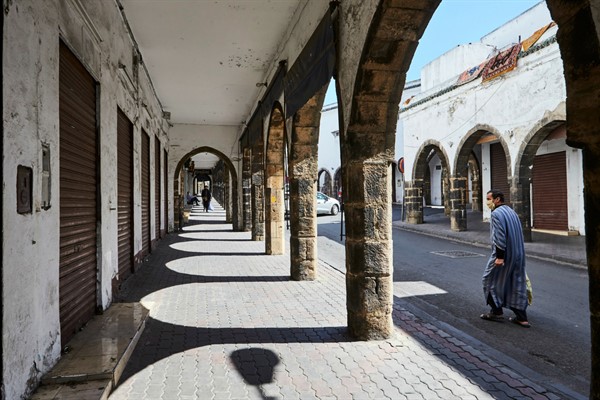MADRID—In late March, about 100 Moroccan migrants living in Spain paid smugglers 5,400 euros each—roughly $6,100—to make the treacherous journey home in inflatable rafts. In a curious case of reverse migration, they desperately fled a wealthy country that had been crippled by the coronavirus and could not offer them work for the foreseeable future. Yet when they finally reached the beaches of Larache, on Morocco’s western coast, they were hunted by the Moroccan authorities, who were concerned that the migrants would spread the coronavirus. Police conducted a door-to-door search, and at least one migrant was found hiding in a clay oven to avoid detection, according to a report in the Spanish newspaper El Pais.
While this treatment may seem harsh, it was part of an aggressive response to the pandemic that has allowed Morocco to keep its confirmed cases of COVID-19 at just over 8,500 so far, including 211 deaths. Some observers have lauded Morocco’s government for successfully curbing the virus’s spread, but other have criticized its heavy-handed containment measures.
Despite being a self-styled constitutional monarchy, King Mohammed VI exercises direct or indirect control over all aspects of Morocco’s government. The 56-year-old monarch has proven himself to be a resilient leader who has at times promised democratic reforms but has been slow to act on many of them. He describes his style of leadership as “change in continuity.”

